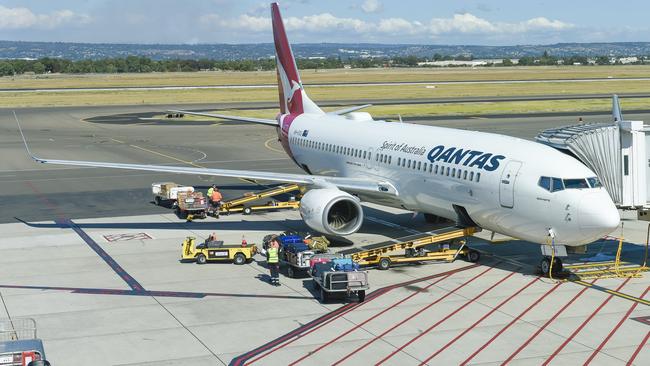Qantas ‘knew cuts would harm brand’
Qantas was concerned its brand could be damaged by a plan to outsource the jobs of 2400 workers but decided to do it anyway, a court has heard.

Qantas was warned that its brand could be damaged by a plan to outsource the jobs of more than 2000 ground staff but decided the cost savings of $100m a year were worth it, a court was told.
A Federal Court case brought by the Transport Workers Union in an effort to reverse the outsourcing decision heard that managers prepared a list of “pros and cons” in relation to the proposal, which was intended to achieve significant cost savings.
The “cons” included brand damage, poor publicity and a negative effect on government and industrial relations, with a consultant’s report pointing out it would amount to the largest blue collar compulsory redundancy program in Qantas’s history.
Another option to reduce costs put forward to the Qantas Group Management Committee was “right-sizing” the existing workforce of baggage handlers, cleaners and ground crew.
However, an internal report said this would mean having to negotiate with the TWU to achieve cost savings, which “appeared difficult”.
The outsourcing of 2400 jobs was eventually approved by Qantas Domestic and International chief Andrew David because of the cost savings to the airline of more than $100m a year.
But the TWU argued Qantas was primarily motivated by the desire to reduce union influence, and pointed to language in reports such as “window of opportunity” and a concentration of union membership.
A report by industrial relations consultant Justine Oldmeadow highlighted the TWU’s stronghold on workers in below-wing operations, with close to 100 per cent union membership.
Under cross examination, Qantas executive manager airports Colin Hughes was asked if that was factored into considerations for the outsourcing decision.
“Ms Oldmeadow speculates why that might be the case and then indicates that the TWU has not been able to organise significant membership among third-party providers,” said Mark Gibian SC for the TWU.
“So … having read that, your understanding was that third party or outsourced suppliers had or were less likely to have high levels of union membership.”
Mr Hughes said: “I had no reason not to believe it to be true.”
He was also grilled about the term “window of opportunity” mentioned in reports to Qantas management, given the TWU was due to begin new enterprise negotiations for ground handlers early this year.
Mr Gibian suggested the phrase implied Qantas needed to act swiftly to outsource ground handling operations before workers were in a position to take protected industrial action.
Under the Fair Work Act, employers can’t take adverse action involving workers for “prohibited reasons” such as cutting union membership or stopping them from exercising their rights.



